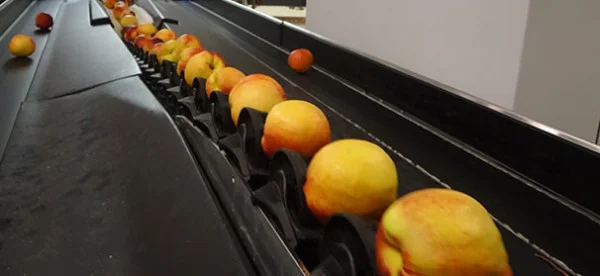
GROWING PRACTICES
WE PRACTICE INTEGRATED PEST MANAGEMENT (IPM)
Pennsylvania’s temperate climate, seasonal changes, and more than 40 different insects, plant diseases and other conditions that threaten apples make it nearly impossible for growers to produce organic fruit on a commercial scale. Despite these challenges, we are committed to producing the highest quality, best tasting fruit that is safely grown and harvested so you and your family can enjoy all the healthy benefits delicious apples have to offer. Bear Mountain Orchards does this by employing Integrated Pest Management (IPM) practices.
WHAT IS IPM?
IPM is a method of managing pests that combines different types of pest control methods —biological, cultural, chemical and mechanical—to reduce the possibility of harm to people, the tree and its fruit, and the environment.
A FEW FACTS ABOUT IPM:
- Under an IPM program, pesticides are used only when warranted
- When pesticides are used, growers are required by law to follow manufacturers’ strict instructions for their use
- Most crop protection products become inactive or are no longer present by the time an apple reaches your table
APPLES ARE FULL OF HEALTHY NUTRIENTS THAT CAN POSITIVELY IMPACT HUMAN HEALTH. CHOOSING TO EAT MORE CONVENTIONAL AND ORGANIC PRODUCE IS ALWAYS THE RIGHT CHOICE. ALL FRESH FRUITS AND VEGETABLES SHOULD BE WASHED THOROUGHLY BEFORE CONSUMING.
WE USE A THOROUGH TRACEBACK SYSTEM
Once Bear Mountain's fruit is picked, identifying tags are affixed to every bin and pallet. Among other things, the tags identify the farm, the orchard block and the variety. In the packinghouse, every bin and pallet is assigned a run number, which is stamped onto the boxes of fruit. If there's a problem with the fruit at the store, Bear Mountain can use the run number to trace it all the way back to the block from which it was picked.
Read more about this process at Fruit Growers News.
BEAR MOUNTAIN IS PRIMUS GFS CERTIFIED.
ORGANIC OR CONVENTIONAL?
ORGANIC. WHAT DOES IT MEAN?
Both organic and conventional are production terms. Neither addresses the quality, safety or nutritional value of fruits, vegetables and other products.
- “Organic” is NOT synonymous with “pesticide-free” or “chemical-free”
- Most state laws allow organic farmers to use a wide variety of chemical sprays on crops; BUT the product’s active ingredients must be derived from natural sources (not synthetically manufactured)
- Whether crop protection products are organic or synthetic does not determine their safety; safety is determined by the level of chemicals present*
- Eco-friendly practices are now common in both conventional and organic systems due to on-going university research on increasing sustainability
*The US has stringent standards governing pesticide use and allowable chemical levels. The USDA concludes year after year that “overall pesticide residues are at levels well below the tolerances set by the Environmental Protection Agency (EPA).”
